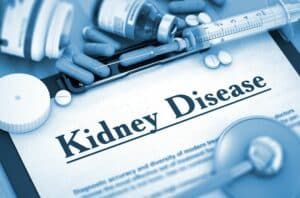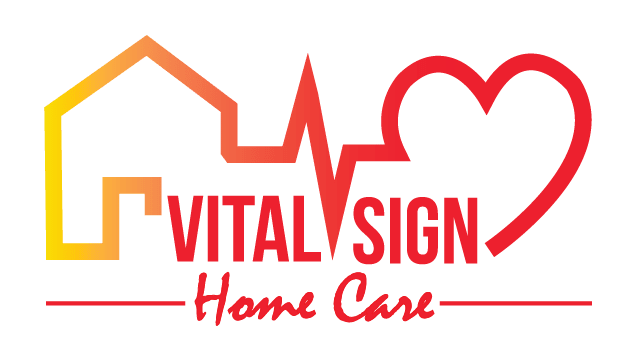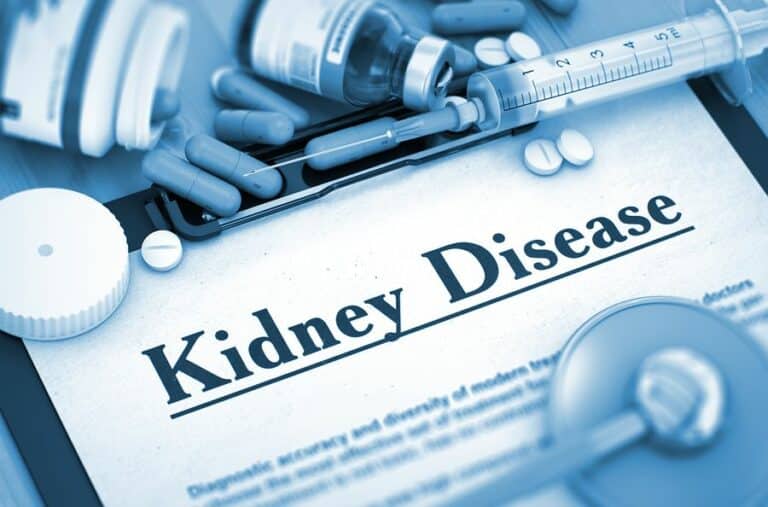Ketogenic, Atkins, Nutrisystem, Jenny Craig, and many more diets exist, as you may know. However, just because something is fashionable in certain circles does not mean it is good for everyone, particularly the elderly. Caretakers providing home care services should consult with their clients’ physicians to learn which foods should be avoided before researching or adjusting to the client’s preferred diet.
Diet is critical when a senior is suffering from kidney disease, especially if it is stage three or higher. Chronic kidney disease (CKD), also known as chronic renal disease, is a disorder defined by the progressive impairment of kidney function over time. CKD4, or chronic kidney disease stage 4, is a late stage of the illness. This is defined as a glomerular filtration rate (GFR) of 15 to 29; however, it may take many tests (or other methods, such as a urine analysis) before a doctor can diagnose.
People with this stage of kidney disease need to pay special attention to their diet, but this doesn’t mean they should be eating a fad diet. Foods should be added and others avoided to preserve the little kidney function left when the late-stage chronic renal disease is present. You will need to focus on eating right for your kidneys.
What Does It Mean To Eat Kidney-Friendly?
A diet that is safe for the kidneys is called a kidney-friendly diet. A kidney-friendly diet focuses on meals low in protein and other waste products while limiting sodium and potassium-rich options.
What Diets Should You Follow?

For each patient, a doctor will help run tests that will help them determine what the senior should be eating. Some seniors may need to limit protein and animal products because it is harder for kidneys to process. However, this can lead to malnutrition if done improperly. Other seniors may need to limit their potassium intake. It can be so hard to entirely eliminate food, so it may be best to modify it or cut back.
The kidneys may benefit greatly from a diet high in potassium. Potassium aids in the regulation of blood pressure, muscular activity, and glucose levels. Potassium, magnesium, fiber, and other vitamins may all be found in abundance in foods rich in potassium. So it may be best to cut back and not cut it out completely.
It’s also important to consider the issue of eating out. Ask restaurants to hold the salt if at all feasible. It’s unlikely that you’ll be able to add more salt to the table than they did. It may be best to try to eat in more or hire home care to help your senior cook and meal-prep.
Hire Home Care Providers for Food Preparation
Home care services often include assisting with food preparation for the client. Nonetheless, they are not trained, nutritionists. They should consult with their physicians to find out what meals may interact negatively with their loved one’s meds. A home care professional is recommended for seniors who need to adhere to a particular diet but may have trouble keeping track of all the details on their own.
A Trusted Skilled Medical and Non-Medical senior home care provider in Annapolis, Arnold, Severn, Guilford, Towson, Brooklandville, Catonsville, Cockeysville, Bel Air, Ellicott City, Columbia MD, and surrounding areas.
If you or an aging loved one is considering Home Care Services in Annapolis MD please contact the caring staff at Vital Sign Home Care today. (410) 814-0258
Venus had a stroke in 2018, she had no movement on the right side of her body and was unable to speak. Venus has made great progress since then and shows up everyday doing her best. She takes pride in overcoming obstacles and never giving up, which has allowed her to obtain a level of success in healthcare.
- Tips for Exercising with Parkinson’s Disease - November 5, 2024
- What to Know About Senior Self-Care Products - October 17, 2024
- Supporting Seniors as They Navigate Daily Changes - October 3, 2024

